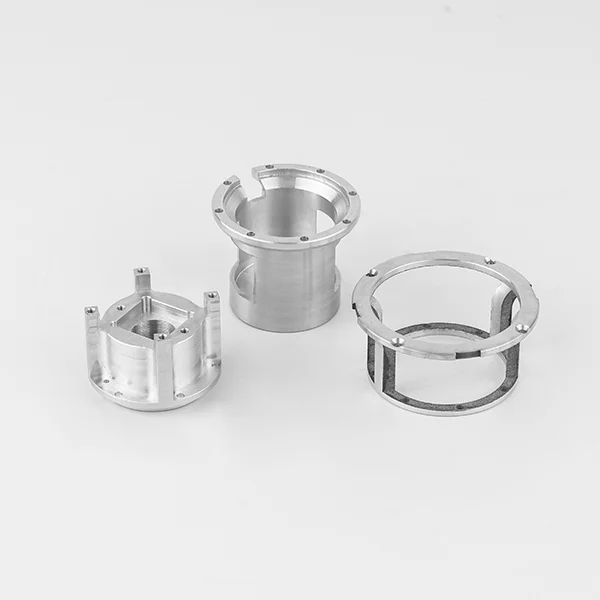CNC (Computer Numerical Control) machining ensures that every component meets exact specifications with minimal tolerances. In this blog post, Okin, a high quality CNC machined parts manufacturer, will share the importance and precision assurance of high precision CNC machining automotive precision parts.
Importance of High Precision in Automotive Parts CNC machining
Automotive components must function seamlessly under extreme conditions, including high speeds, heavy loads, and fluctuating temperatures. Even the smallest deviation in measurements can lead to performance inefficiencies or safety concerns. High precision automotive precision parts CNC machining addresses these challenges by producing components with unmatched accuracy, ensuring proper fitment, and enhancing the overall longevity of a vehicle.
Precision machining is particularly crucial in critical automotive systems such as:
- Engine components: Pistons, cylinder heads, camshafts, and crankshafts require precision machining to ensure efficient combustion and power delivery.
- Transmission parts: Gears, shafts, and housings must be machined with tight tolerances to ensure smooth operation and minimal wear.
- Brake systems: Calipers, rotors, and master cylinders must meet exact specifications for optimal safety and performance.
- Suspension components: Ball joints, control arms, and bushings must be precisely manufactured to ensure stability and durability.

Precision Assurance of High Precision CNC Machining Parts
CNC machining utilizes computer-controlled tools to shape raw materials into intricate automotive parts with incredible accuracy. The process involves multiple techniques such as milling, turning, drilling, and grinding, each of which is tailored to produce highly specialized components. The advantages of CNC machining in the automotive industry include:
1. Unparalleled Accuracy: CNC machines can achieve tolerances as tight as ±0.001mm, ensuring components meet exact specifications.
2. Consistency and Repeatability: Once programmed, CNC machines can produce thousands of identical parts without deviations.
3. Efficiency and Speed: Advanced CNC machines operate at high speeds while maintaining precision, reducing production lead times.
4. Versatility in Material Processing: CNC machining is compatible with a variety of materials, including aluminum, stainless steel, titanium, and composites, catering to the diverse needs of the automotive industry.
5. Cost-Effectiveness: Although the initial setup cost may be high, CNC machining reduces waste and labor costs, making it a financially viable solution for mass production.
Role of CAD and CAM in Precision CNC Machining
The high precision of CNC machining is largely attributed to the integration of CAD (Computer-Aided Design) and CAM (Computer-Aided Manufacturing) software. CAD software allows engineers to design complex automotive components with exact dimensions, while CAM software translates these designs into machine-readable instructions. The synergy between CAD and CAM ensures that every cut, drill, and turn adheres to precise specifications, minimizing errors and reducing material wastage.
Materials Used in High Precision Automotive CNC Machining
The choice of material plays a crucial role in determining the performance, durability, and efficiency of CNC-machined automotive parts. Some commonly used materials include:
- Aluminum: Lightweight and corrosion-resistant, aluminum is widely used in engine components, transmission casings, and suspension parts.
- Stainless Steel: Known for its strength and resistance to wear and tear, stainless steel is often used in exhaust systems, brake components, and fuel injectors.
- Titanium: With an excellent strength-to-weight ratio, titanium is ideal for high-performance applications such as racing and aerospace-grade components.
- Plastics and Composites: Advanced plastics and carbon fiber composites are used in lightweight structural and aesthetic parts to improve vehicle efficiency.
Conclusion
High precision automotive precision parts CNC machining is the backbone of modern vehicle manufacturing. Its ability to produce accurate, reliable, and durable components ensures that vehicles perform optimally while meeting safety and efficiency standards. As technology continues to advance, CNC machining will remain at the forefront of automotive innovation, driving progress in performance, sustainability, and automation.
https://www.okinmachining.com/High-Precision-Automotive-Precision-Parts-CNC-Machining.html
www.okinmachining.com
Okin
